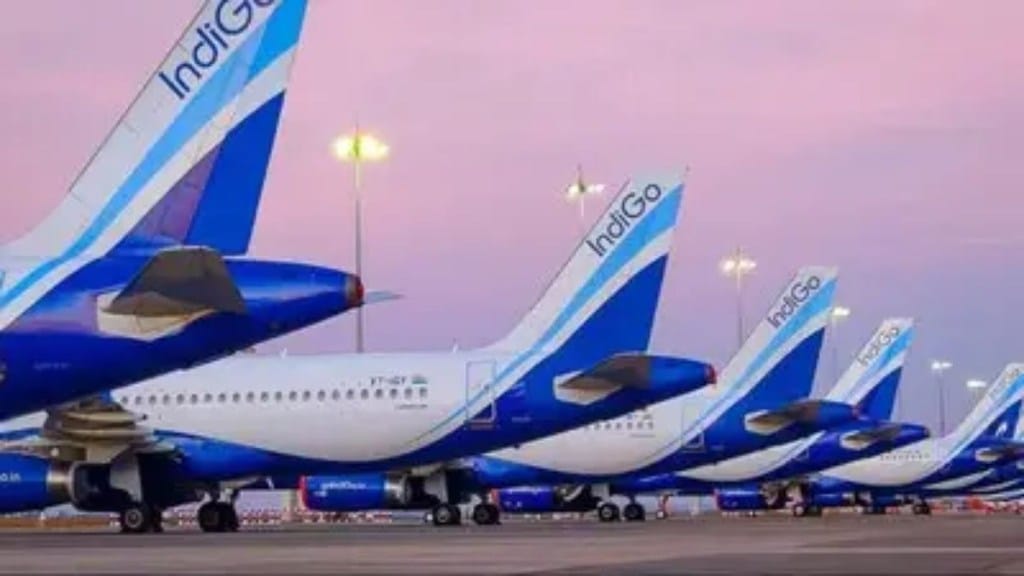Interglobe Aviation, the operator of low-cost IndiGo airlines, has received a nod from the Directorate General of Civil Aviation (DGCA) to wet-lease 11 A320 aircraft. This comes amid IndiGo grounding nearly 40 planes due to a Pratt & Whitney engine issue, according to officials.
The development comes as the country’s largest airline grapples with capacity challenges due to P&W engine woes. As many as 40 IndiGo aircraft have been taken out of service due to problems with their Pratt & Whitney engines. In response to this situation, the airline has opted to wet lease narrow-body A320 aircraft to address the increasing demand for air travel.
While IndiGo spokesperson denied to comment on the wet leasing of A320 planes, a source close to the development confirmed this and said the airline is looking to wet lease around 22 A320 aircraft. The airline operates more than 1,800 flights daily with a fleet of over 300 aircraft and is looking to expand its network on domestic and international routes.
What is a wet lease arrangement?
In a wet lease arrangement, aircraft are leased along with their operating crew and engineers. The airlines opt for wet leasing when they face temporary supply constraints. IndiGo has already leased two Boeing 777 planes from Turkish Airlines under such an arrangement.
As of September 13, 39 A320 aircraft from IndiGo’s fleet of 328 planes are grounded, according to data from the aircraft tracking website Planespotters.net. IndiGo is the largest customer of A320 planes, and these aircraft are equipped with Pratt & Whitney (P&W) engines.
How is IndiGo managing Aircraft on Ground situation?
On August 2, IndiGo CEO Pieter Elbers mentioned that the supply chain challenges had affected a significant number of aircraft, which he described as being in the high thirties.
“I would actually label it now around 40,” he had said during a call with analysts to discuss the June quarter results.
During the company’s annual general meeting held on August 24, Elbers informed shareholders that a comprehensive set of measures is being implemented to deal with the Aircraft on Ground (AOG) situation. These measures include collaboration with Turkish Airlines as part of their strategy to address the issue.
“We are dealing with some AOG situation… AOG is being dealt with a whole range of mitigating measures. These measures were announced at the end of last year and have been effective in order to make sure that we deliver our capacity guidance that we provided to the market and shareholders earlier,” Elbers had said.
Pratt & Whitney (P&W) is currently facing supply chain challenges, and as a result, several IndiGo aircraft have already been grounded due to engine-related issues.
Meanwhile, in July, United States-based firm P&W, reported the discovery of an unusual condition in the powdered metal used for manufacturing specific engine components, which could potentially reduce their lifespan. P&W estimated that approximately 1,002 PW1100G engines globally would be affected by these material anomalies.
However, on August 10, the Directorate General of Civil Aviation (DGCA) stated that the material anomalies identified in certain P&W engines would have only a “minimal” impact on the IndiGo fleet. This is because only two operational engines of the airline needed to be removed for inspection. Out of the 15 engines that power IndiGo’s planes and are impacted, 13 of them are presently non-operational, according to a senior official at the regulator.
